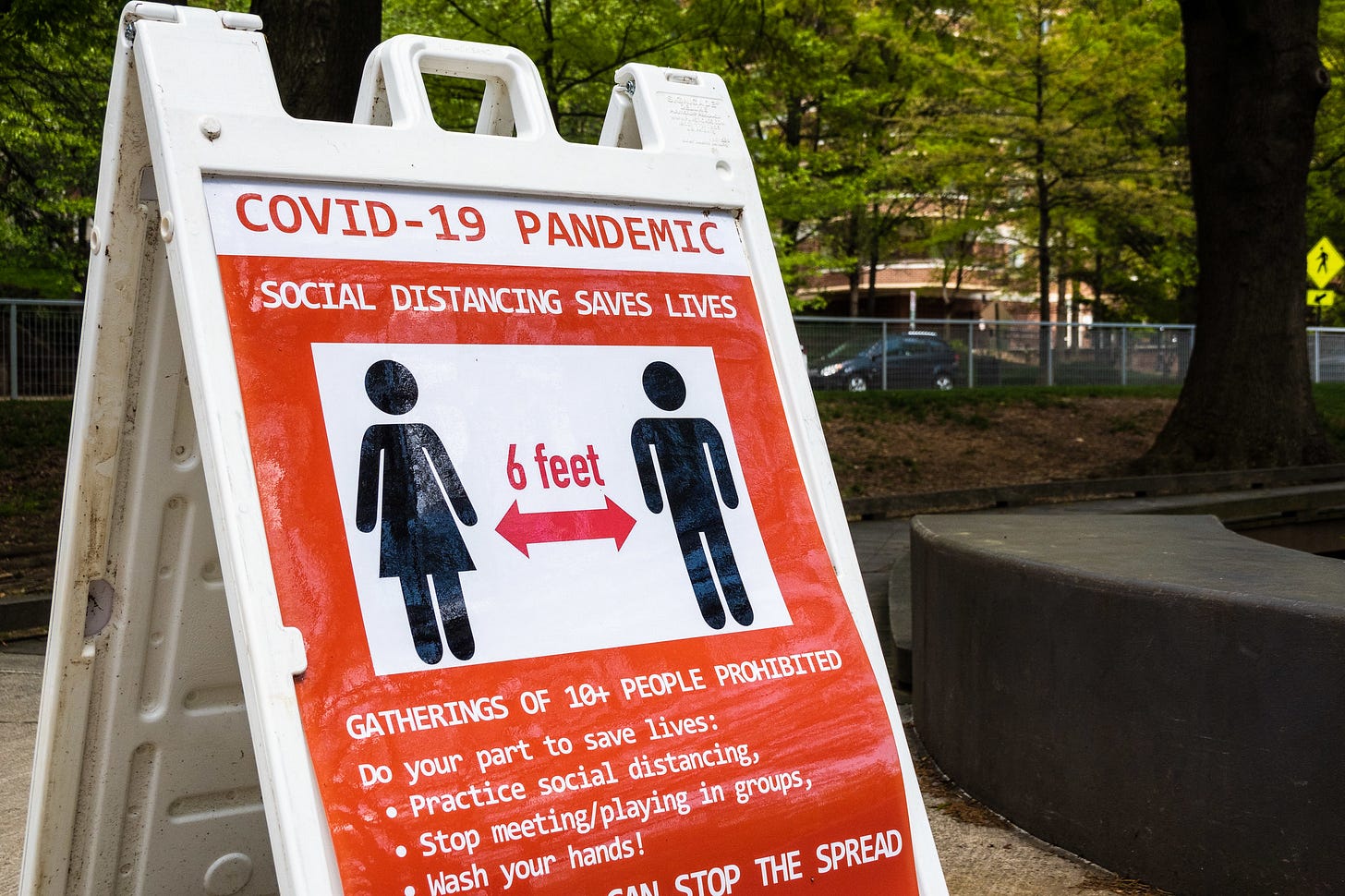Shut Everything Down Again
We're in a third COVID wave, and there's an obvious solution. Why won't we try it?
The United States is in the throes of the third and possibly worst wave of the COVID pandemic. The country set a record last Thursday for most new cases in a single day with more than 77,000. The next day we saw 85,000 new cases.
Experts have called the spread uncontrollable throughout much of the country, and top White House staffers have said essentially the same thing. If things stay like this, hundreds of thousands more people could die.
There is one thing we could try: shutting everything down again in states and areas that are experiencing uncontrollable spread—anywhere the testing positivity rate is over 5%—paying people to stay home, and remaining shut down for four to six weeks or whenever those states get COVID under control. Yet few people in power—only a handful of governors, and certainly not the president—appear to be even considering a total lockdown. It's a complete failure and abandonment of responsibility that's going to needlessly cost many more lives as a result.
This isn't some novel idea—in July, during the pandemic's second surge, more than 150 health experts around the country signed a letter which said we should re-enter lockdown mode—closing non-essential businesses, limiting restaurant service to take out, making masks mandatory, and encouraging people to stay home unless absolutely necessary—until the virus was under control.
"We need that protocol in place until case numbers recede to a level at which we have the capacity to effectively test and trace," the experts wrote. "Then, and only then, we can try a little more opening, one small step at a time."
During this surge, it's been even worse. Hospitals in El Paso are now airlifting COVID-19 patients to other parts of the state because they can't deal with the surge of cases.
In Illinois, health director Dr. Ngozi Ezike broke down on Saturday while talking about the state's coronavirus deaths. But the state's Democratic governor, J.B. Pritzker, is putting cops on the beat to patrol restaurants and bars rather than ordering businesses to shut dine-in service, criminalizing the problem rather than ordering restrictions that make sure it doesn't happen in the first place.
“It is very serious right now, folks, and if we need to close down restaurants or bars or take away their liquor licenses, take away their gaming licenses, we will do that because we are now headed into a peak that is beyond, potentially, where we were in March and April,” Pritzker said Thursday. Talk about mixed messages.
North Carolina Gov. Roy Cooper decided last week to extend "phase three" of the state's COVID-19 restrictions—meaning most businesses can open with limited capacity—to November 13, although all of the state's metrics that are supposed to guide this decision have gone straight downhill along with the rest of the country.
Cooper essentially placed the responsibility on the public to stay safe. "The virus continues to spread, so we must take the next steps methodically and responsibly,” Cooper at a press conference last week, “And we must rely on North Carolinians taking personal responsibility to protect others by wearing masks and keeping their social distance.”
These are, somehow, some of the better cases—at least some restrictions are still in place. In the particularly hard-hit state of South Dakota, which is home to one of the worst case spikes in the country, Gov. Kristi Noem is whining about Paul Krugman op-eds and explicitly framing mask-wearing not as a public health necessity but some kind of controversial accessory.
This is not surprising, but it is absolute madness. We're in the middle of our worst nationwide COVID outbreak and it seems no one who has any sort of authority is willing to entertain a full lockdown. This despite the fact that Americans all over the country have approved of lockdowns from the beginning of the pandemic, and a poll last month—before things got much, much worse—showing a majority of people would back a national lockdown.
And if protecting the public isn't enough of a reason to back them, caution has had political benefits too. Cooper, for example, is set to easily win re-election against the state's Republican pro-reopen lieutenant governor after winning by the slimmest of margins in 2016. Our most cherished brains (such as the Chicago Tribune's John Kass) who think the definition of authoritarianism is temporarily not being able to drink a Michelob Ultra in the presence of 14 other strangers are loud, but relatively few and far between.
It's obvious that workers are struggling right now and being forced to prioritize paying their bills over avoiding exposure to a deadly illness, and businesses like local restaurants and bars have been decimated. But that's not the virus' fault. It's Congress' fault, especially the Senate GOP, which has stood as the biggest obstacle to a second coronavirus package. And for all that risk and all this death, the economy is still garbage—up to eight million people are facing evictions, and millions have lost their jobs forever.
Joe Biden was right during the final presidential debate last week when he said that we're heading for a "dark winter," but he later added that he would "shut down the virus, not the country" (incoherent) and clarified that he's "not shutting the country down." If there's any hope, however, of getting through this thing without half a million dead by next spring, as current University of Washington projections estimate, Congress has to pass more aid and we have to start locking down everything that unnecessarily requires even several people to be inside together at the same time.
There's no other way, and the fact that this isn't a complete no-brainer is a good indication of how comprehensively fucked we are right now.





